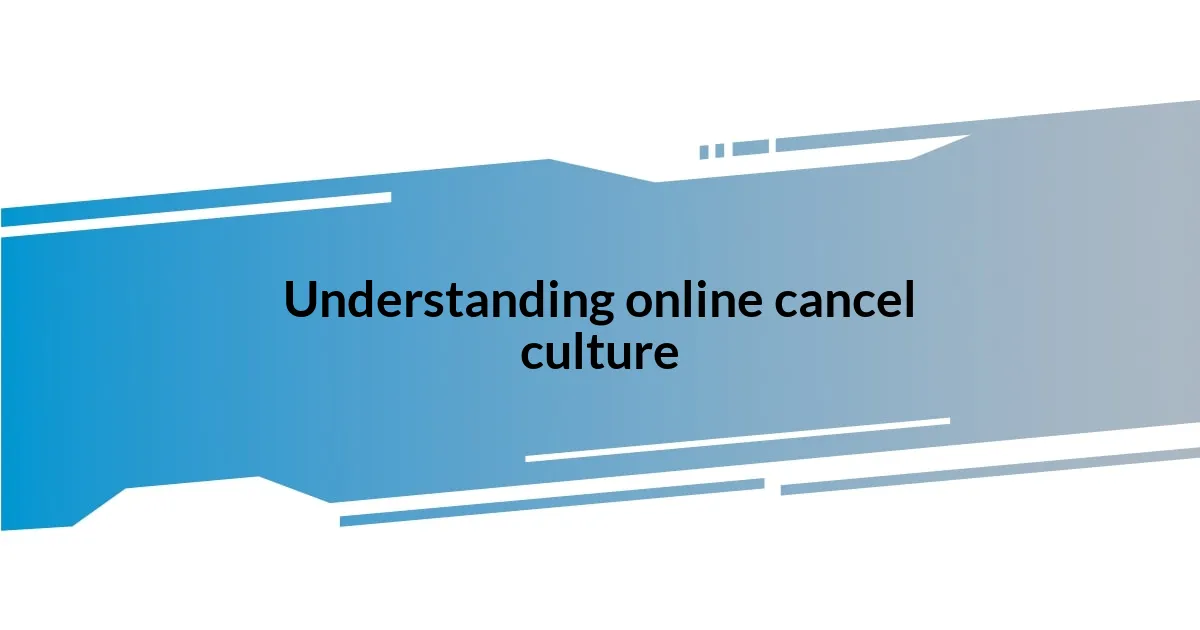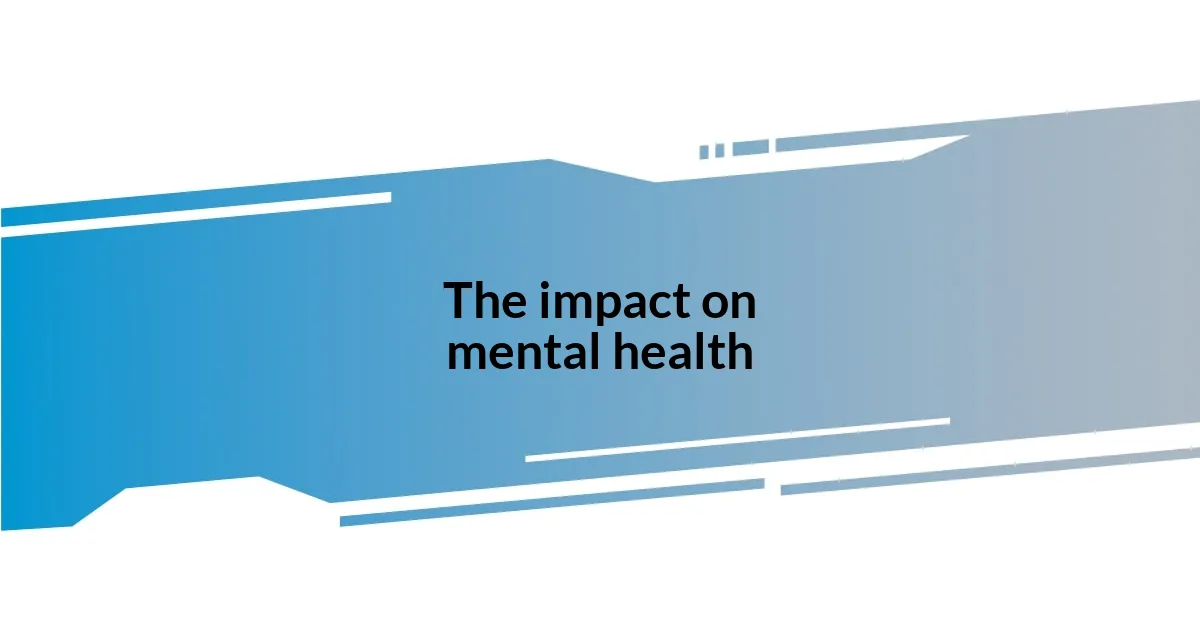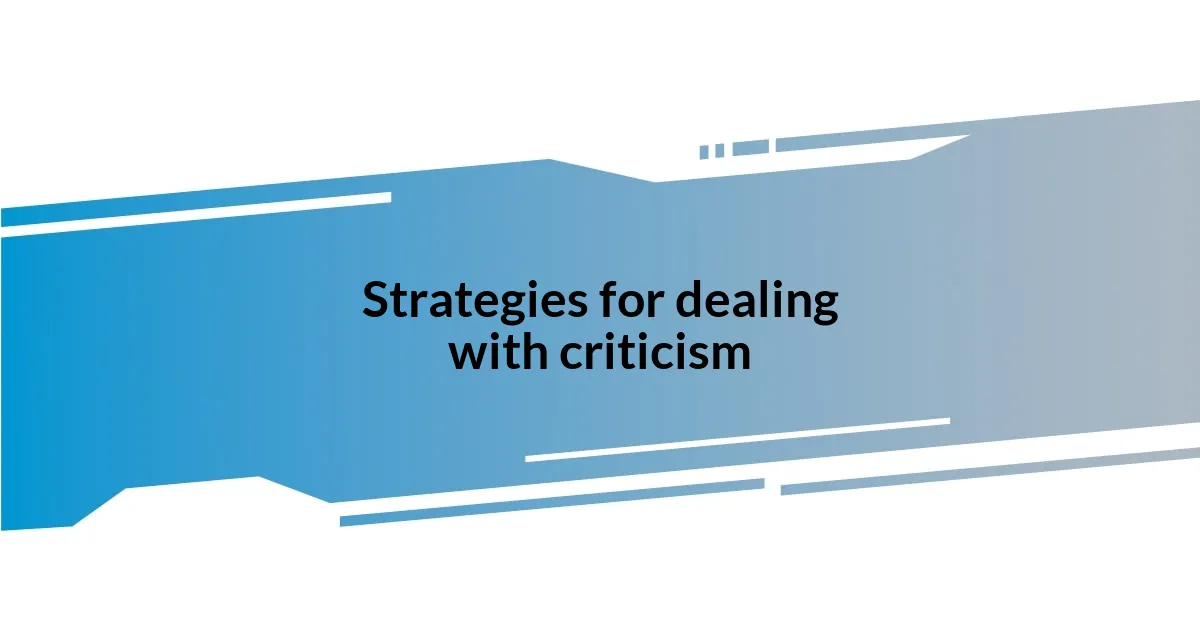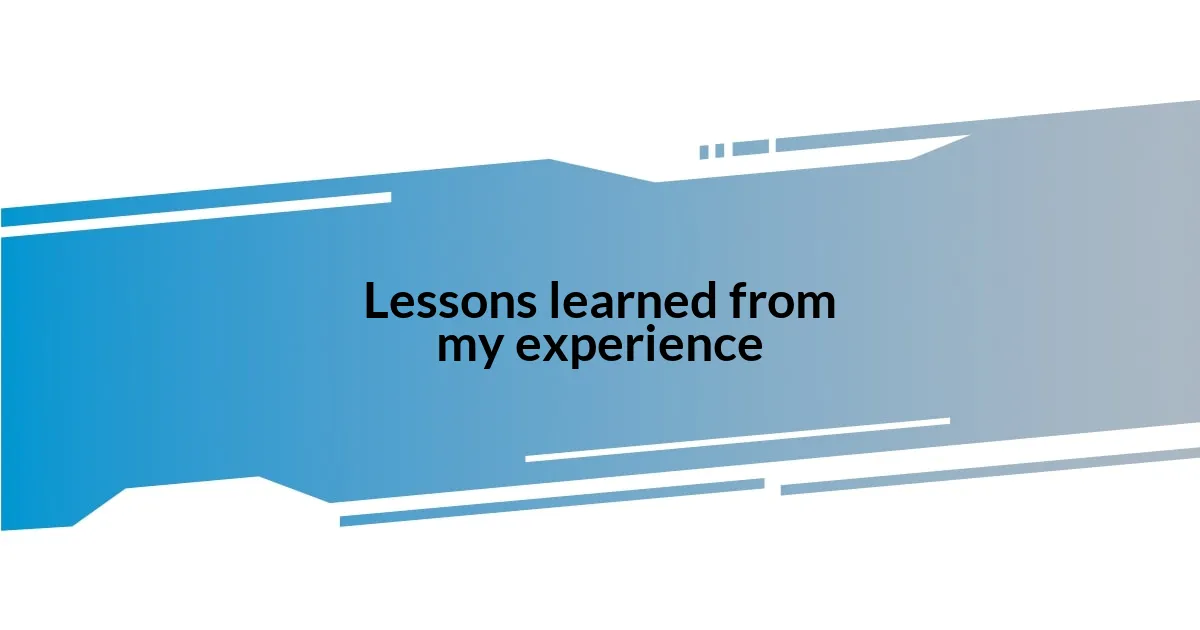Key takeaways:
- Cancel culture often results in significant emotional distress, leading to anxiety, reduced self-esteem, and social withdrawal among those affected.
- It’s crucial to differentiate between accountability and punishment to foster honest conversations and understanding.
- Effective strategies for dealing with criticism include pausing before reacting, seeking supportive voices, and reframing feedback as opportunities for growth.
- Empathy and building a supportive community can transform perspectives and provide resilience during challenging experiences with cancel culture.

Understanding online cancel culture
Cancel culture, at its core, is a social phenomenon where individuals or groups face public backlash, often on social media platforms, due to their actions or statements. I’ve witnessed it first-hand; a friend of mine posted a seemingly innocent joke that, although intended for humor, was met with a wave of outrage. It left me wondering: how often do we rely on our immediate reactions instead of seeking context before jumping to conclusions?
The emotional impact of cancel culture is profound. I remember feeling a sense of unease when a favorite creator of mine was “canceled” overnight. It’s startling to realize how easily public opinion can turn, and how quickly someone’s life can change based on a single tweet or post. This makes me think—do we always consider the human beings behind the screens or the potential for growth and redemption?
As I dive into this topic, it’s clear that the lines between accountability and punishment can sometimes blur. Have we created an environment where fear of being canceled stifles honest conversation? I believe this is crucial to discuss; our willingness to engage thoughtfully with differing opinions may be the key to a more understanding society.

The impact on mental health
The psychological toll of being “canceled” can be overwhelming. I recall a time when I inadvertently stumbled into a heated online debate. What began as an innocent opinion quickly spiraled into aggressive criticism, leaving me feeling anxious and isolated. It’s unsettling how one moment of vulnerability can lead to relentless scrutiny and public disdain.
- Feelings of anxiety can surface, leading to sleepless nights.
- Victims may experience a significant drop in self-esteem, questioning their worth.
- Social withdrawal becomes a coping mechanism, as individuals fear judgment.
- The fear of future backlash can suppress authentic self-expression.
- Long-term emotional scars may develop, complicating future interactions.
Ultimately, while cancel culture may be rooted in accountability, the mental health implications are real and deserve attention.

Strategies for dealing with criticism
Dealing with criticism, especially in today’s online landscape, requires a mindful approach. One strategy I’ve found effective is to take a step back before reacting. When I faced harsh comments on a project I was passionate about, I paused to reflect rather than responding immediately. This helped me separate my personal feelings from the feedback itself, allowing for a more constructive dialogue.
Another tactic is seeking supportive voices. I remember a time when I felt overwhelmed by the negativity surrounding an article I published. I reached out to friends and fellow creatives who provided perspective and encouragement. Their insights helped me see the value in my work and realize that differing opinions are a part of sharing ideas publicly.
Lastly, reframing criticism can be powerful. Rather than viewing it as a personal attack, I began to look at feedback as an opportunity for growth. This shift has been liberating—I now ask myself, “What can I learn from this?” and it has paved the way for personal development and resilience.
| Strategy | Description |
|---|---|
| Pause Before Reacting | Take time to separate emotions from criticism to respond thoughtfully. |
| Seek Support | Reach out to trusted friends for perspective and encouragement. |
| Reframe Criticism | View feedback as an opportunity for growth rather than a personal attack. |

Lessons learned from my experience
One significant lesson I’ve learned is the importance of resilience. I faced a wave of backlash for a social media post I shared, filled with apprehension and dread. Reflecting on this experience, I realized that while the immediate hurt was palpable, it also pushed me to rediscover my passion and conviction. Isn’t it interesting how adversity can shape our resolve?
Another takeaway is the necessity of empathy. When I encountered someone being “canceled,” my instinct was to judge. But as I sat down and listened to their perspective, I understood the complexities behind their actions. This experience transformed my view—how often do we rush to judgment without seeking context? I now feel compelled to approach conflicts with compassion, knowing that everyone has a backstory that informs their decisions.
Lastly, I’ve learned to cultivate a supportive community. During my own experience with cancel culture, I discovered just how vital it is to have friends who understand the nuances of online interactions. I remember a night spent talking with my closest companions, sharing fears and doubts. Their presence reminded me that connection is key in moments of crisis. Have you sought out your support network in challenging times? It can make all the difference.